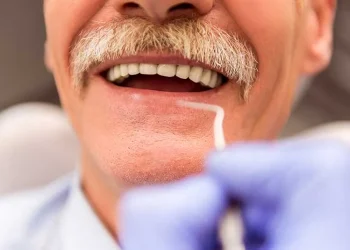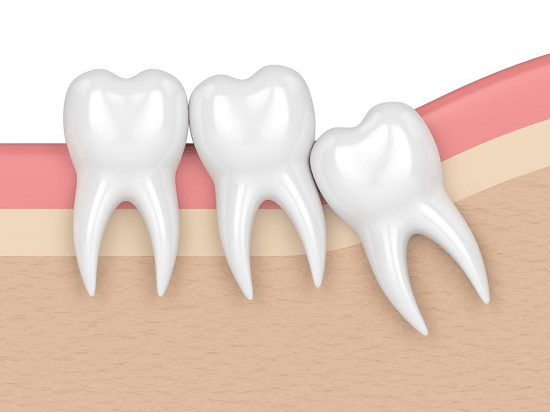Contents
Grinding Teeth: What You Need to Know
Porcelain crowns are a popular dental solution for restoring damaged or decayed teeth. They are designed to mimic the look and feel of natural teeth and are often used for cosmetic purposes. However, before the porcelain crowns can be fitted, it is common for your dentist to grind down your teeth. In this article, we will discuss what grinding teeth for porcelain crowns entails and what you need to know about the process.
The Process of Porcelain Crowns
Consultation and Examination
Your dentist will examine your teeth and determine whether porcelain crowns are the right treatment option for you. They may also take X-rays or impressions of your teeth to help plan the treatment.
Tooth Preparation
To prepare your tooth for a crown, your dentist will remove a small amount of enamel from the surface of the tooth. This helps to create space for the crown and ensure a proper fit.
Impressions
Your dentist will take an impression of your tooth, which will be used to create a custom-made porcelain crown. This may be done using either traditional putty impressions or digital scanning technology.
Temporary Crown
While your porcelain crown is being manufactured, you will be given a temporary crown so that your tooth will be protected.
Crown Placement
Once your permanent crown is ready, your dentist will remove the temporary crown and place the permanent one on your tooth. They will make sure that the crown fits your teeth perfectly and check if any adjustments are needed before the crown is put in place.
Follow-Up
After the crown is placed, your dentist will provide you with instructions on how to care for your new restoration. They may also schedule a follow-up appointment to check the fit and make sure the crown is functioning properly.
Porcelain crowns can be a great option for restoring damaged or discolored teeth. Talk to your dentist to learn more about whether porcelain crowns are right for you.
What is Grinding Teeth for Porcelain Crowns?
Grinding your teeth for porcelain crowns is a common dental procedure. The process involves the removal of a small amount of tooth enamel to make space for the porcelain crown that will be placed over the tooth. This is done to ensure a perfect fit and to restore the tooth’s natural appearance. The amount of enamel that needs to be removed will be determined by the size and shape of the porcelain crown that will be used. The procedure is usually quick and painless and can be completed in just one visit to the dentist. After the grinding process, the crown is placed.
Potential Risks of Grinding Teeth for Porcelain Crowns
While the process of grinding down your teeth is a necessary step in the porcelain crown process, it is important to be aware of the potential risks involved in this procedure. One of the primary risks associated with this process is the removal of too much enamel, which can weaken your tooth and make it more susceptible to decay and damage. This can be particularly concerning for patients who already have weakened teeth, as it can further compromise the overall health of your tooth.
In addition to the risks associated with removing too much enamel, there is also the potential for discomfort and even infection if the porcelain crown is not fitted correctly. This can occur if the crown is either too large or too small, or if it is not properly aligned with the surrounding teeth. In some cases, this can cause discomfort or pain, and may even require additional dental work to correct the problem.
Another risk associated with the grinding process is tooth sensitivity. This occurs when the enamel is removed, exposing the underlying dentin. Because dentin is more sensitive to temperature changes and certain foods, this can cause discomfort and even pain for some patients. However, it is important to note that this sensitivity is usually temporary and can be managed with desensitizing toothpaste or other treatments recommended by your dentist.
It is also important to recognize that tooth sensitivity is not the only potential risk associated with grinding teeth for porcelain crowns. In some cases, the grinding process may cause damage to the tooth’s pulp, which can lead to infection and the need for a root canal treatment. This can be a particularly concerning issue for patients who have already experienced dental trauma or who have a history of dental problems.
To mitigate these risks and ensure a successful porcelain crown procedure, it is crucial to work with a skilled and experienced dentist. Your dentist can properly assess your needs and recommend the best course of action, whether that involves grinding down your teeth for porcelain crowns or exploring alternative treatments, such as dental bonding or veneers. Your dentist may also recommend additional treatments to strengthen your teeth and protect them from damage, such as fluoride treatments or dental sealants.
Caring for Your Teeth After Porcelain Crowns
Once the porcelain crowns have been fitted, it is important to take good care of your teeth to ensure their longevity. Proper oral hygiene habits are crucial in avoiding complications that may arise from poor dental care. In fact, observing these habits can also help improve your overall health.
It is recommended to brush after meals so that you can rid your mouth of any food particles that may have been stuck between your teeth. This will help prevent the buildup of plaque, which can lead to tooth decay and gum disease. Also, make sure to brush your tongue to remove bacteria that cause bad breath.
Flossing is equally important in maintaining good oral health. It helps clean the hard-to-reach areas in your mouth where dental plaque can accumulate. It is best to floss at least once a day, preferably before bedtime, to remove any food particles and plaque that may have accumulated during the day.
Visiting your dentist regularly is also essential in maintaining good oral health. Your dentist will be able to identify any issues that may arise and provide the necessary treatment. They can also clean your teeth more thoroughly than you can at home, removing any plaque or tartar buildup.
It is important to avoid chewing on hard or sticky foods that may cause damage to your porcelain crowns. These types of food can cause the crowns to crack or break, which may require costly repairs. Instead, stick to softer foods that are less likely to damage your teeth.
If you grind your teeth at night, it is advisable to wear a mouthguard to protect your teeth from further damage. Grinding your teeth can wear down the enamel, making your teeth more susceptible to decay and sensitivity. A mouthguard can help protect your teeth from further damage and may even improve the quality of your sleep.
By following these tips, you can maintain good oral health and ensure the longevity of your porcelain crowns.
Alternatives to Porcelain Crown
Not everyone is comfortable with the idea of having their teeth ground down. Fortunately, there are alternative treatments available that can achieve similar results.
Dental Bonding
In the dental bonding procedure, a tooth-colored resin material will be applied to the surface of the tooth. This material is then hardened with a special light, bonding it to the tooth. Dental bonding can be used to repair chipped or cracked teeth, as well as to cover up stains or discolourations. It is also a less invasive and less expensive alternative to dental crowns. However, dental bonding is not as durable as a dental crown, and may need to be replaced every few years.
Porcelain Veneers
Porcelain veneers are thin porcelain shells that will cover the front surface of the teeth. Veneers are often custom-made to fit each patient’s teeth perfectly. They are often used in case of discolored, chipped, or misshapen teeth. Compared to dental bonding, porcelain veneers can last for much longer, providing that they are given proper care. They are also more expensive than dental bonding, but they are less invasive than dental crowns, as they require less tooth structure to be removed.
Inlays and Onlays
Inlays and onlays are used for damaged teeth. They can restore teeth that have suffered from decay or trauma. They are made of porcelain or composite resin, and are custom-made to fit the exact shape of the tooth. Inlays and onlays are less invasive than dental crowns, as they require less tooth structure to be removed. They are also more durable than dental bonding, and can last for many years with proper care. Grinding down your teeth for porcelain crowns is a common dental procedure that can help restore damaged or decayed teeth. While there are some potential risks involved, choosing a reputable dentist and practicing good oral hygiene habits can help minimize these risks and ensure the longevity of your porcelain crowns. However, if you are still hesitant, there are several alternatives you can consider. Contact Home Dental for further consultation to find the best dental treatment for you.














